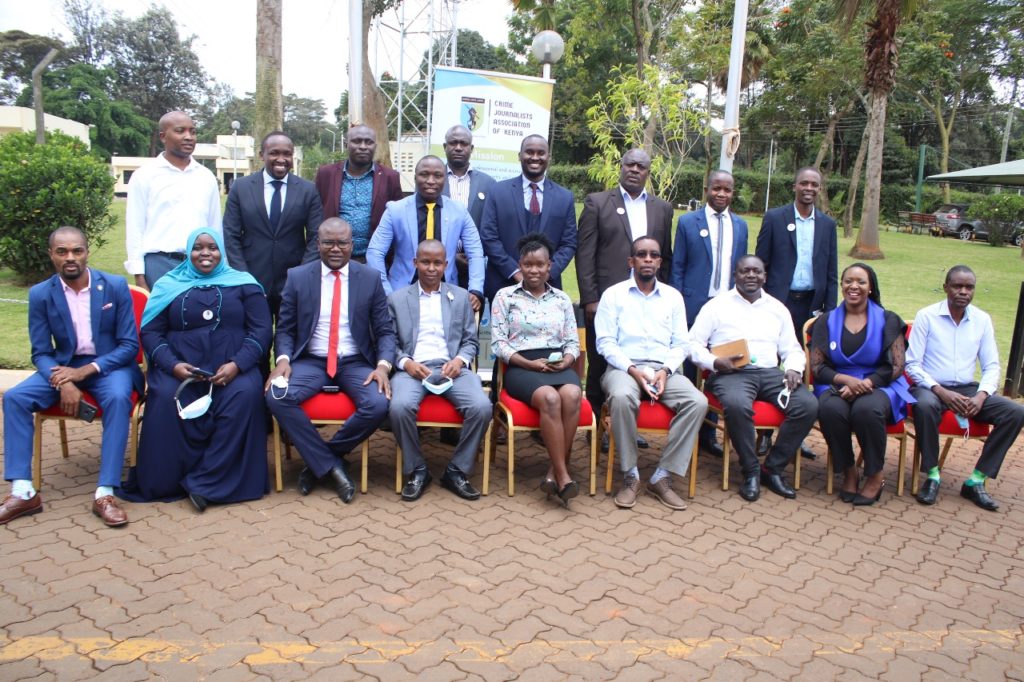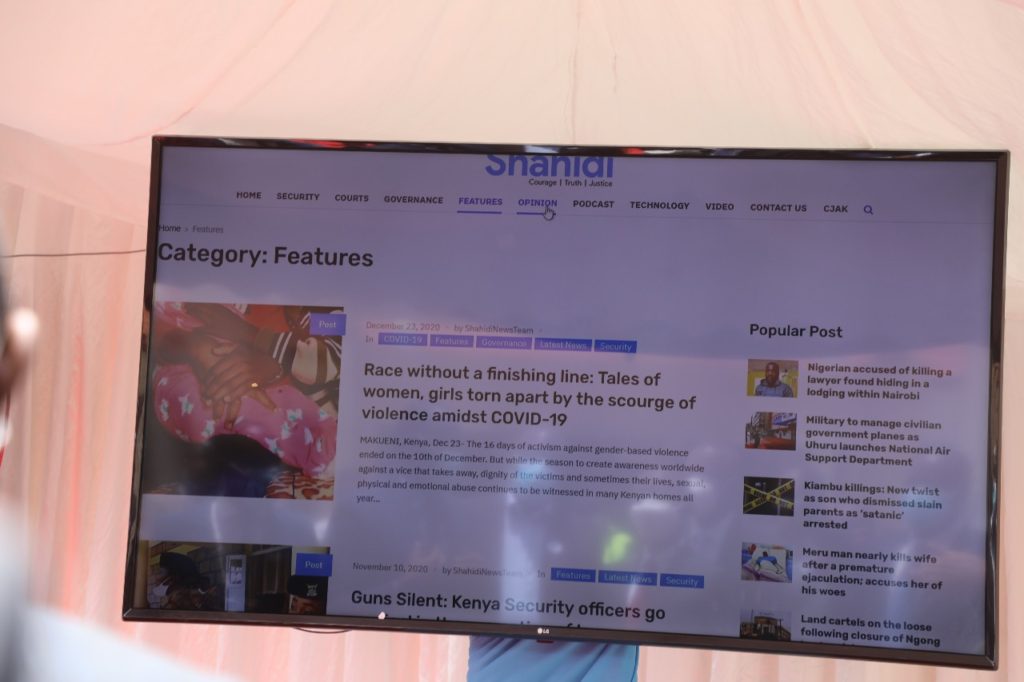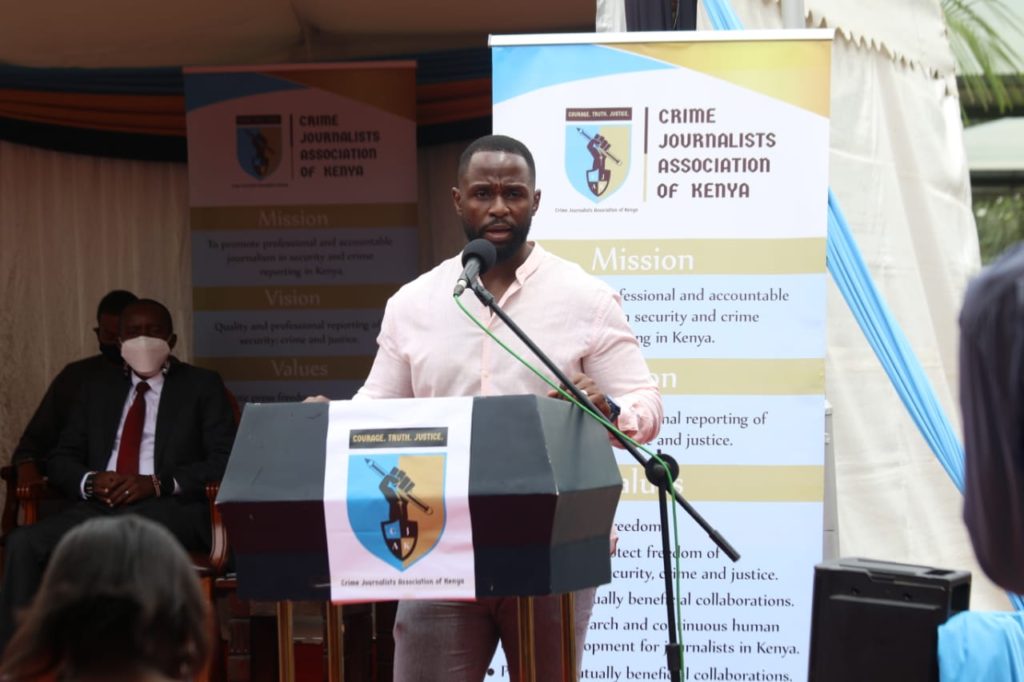NAIROBI,Kenya, Mar, 5 – The fast paced world of news as we know it is quickly changing.
As communicators and story tellers in the world of journalism, change as they say is inevitable, and necessary in a profession whose sounding call has never been louder than now.
In the last decade, traditional forms of media have increasingly lost their grip on the market following the emergence of online social based platforms and a decrease in advertising spending that has for years accounted for the media’s main source of income.
Studies have also revealed that viewing patterns and habits of Kenyans in recent years has shifted, almost gravitating toward social media platforms where they receive ‘instant’ news in an era of convergent, high choice media.
Demand for long form, analytical news pieces in Kenya are now the driving force in an industry that is often said to be clutching for straws and accused by audiences of lacking in-depth stories anchored around public interest.

During the launch of the Crime Journalists Association of Kenya (CJAK) on Thursday, celebrated investigative journalist John-Allan Namu who knows all to well about a shrinking audience in traditional forms of media and an intelligent audience demanding high quality content that is easily accessible particularly on social media said the current crop of Kenyan journalists must change and learn new skill-sets to improve their quality of journalism.
“The scoop as we have known it is dying, we are no longer part of that cohort of journalists that depended on being first with the news to take it out to the public….many at times members of the public will be first with the news, ” the Africa Uncensored Chief Executive Officer said.
He asserted that it is the responsibility of journalists to provide deep, insightful, analytical, incisive journalism.
Namu further encouraged journalist to collaborate in producing great news stories.
“And it is important that CJAK is an organization started by journalists and not owners so that movement to collaborate across newsrooms with independents can come from journalists who know what is happening on the ground, who are interested in providing accurate, incisive information to the public,” he said.
“If that push comes from the ground then in a couple of years that will become the mainstream way of reporting.”

Namu who is the co-founder of Africa Uncensored, an independent media house also lauded CJAK’s mission to focus and invest in research saying that journalists will be able to better their skills within its organization as well as other journalists that will collaborate with them.
In the current dispensation, journalists are further encouraged to learn all sorts of skill-sets in order to survive and thrive as they grapple to have their content distributed and consumed by its intended target, members of the public.
Across the African continent, independent journalists have struck a balance in news reporting by collaborating and using skill-sets that were traditionally non-journalistic but are now becoming mainstream tools for investigation on crime such as open source investigative techniques and network analysis.
“These were skills not in the newsroom but must become part of the newsroom if we are going to be able to be that global standard setter as Kenyan journalists,” Namu said.
Journalists however across the board continue to face a plethora of challenges in fulfilling their journalistic duties with access to information, particularly public information such as access to information on individuals or companies granted tenders remaining a mirage with little or no accountability or scrutiny on the process.
It is a demand that access to such vital public records will help Kenyans put their government to account and perhaps weed out corrupt individuals in a society that has become accustomed to scandals on the daily with little justice as state coffers remain looted.
“Criminals are everywhere, criminals are here and let us not kid ourselves, criminals are also getting smarter and collaborating with lawyers and accountants with all sorts of professionals across the world to hide their money, to hide their trail to become part of mainstream society,” he said.
“So collaborative investigative and in-depth journalism as proposed by CJAK is more important today than it has ever been. It is more important to collaborate and share skill-sets, share knowledge and really be able to push the envelope in our reporting.”
Journalists across the country are now encouraged to collaborate and ensure that public interest reporting becomes mainstream and that journalists become part of the driver’s seat in setting the public agenda and collaborate in performing their key task which is report in the interest of the public.
Want to send us a story? Contact Shahidi News Tel: +254115512797 (Mobile & WhatsApp)


